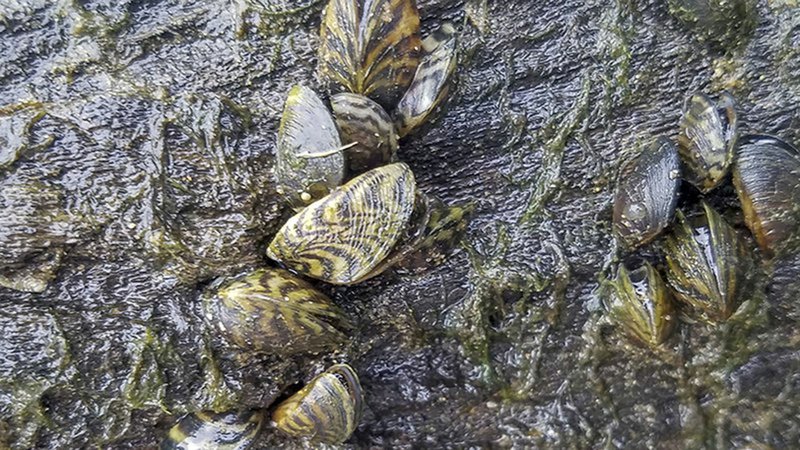Fisheries biologists with the Arkansas Game and Fish Commission have confirmed zebra mussels in the portion of the White River just downstream of Bull Shoals Dam.
Zebra mussels are an invasive species that can cause an extreme nuisance to fisheries managers by displacing native mussel populations and clogging infrastructure such as pipes and valves in dams, boats and water-control structures.
Zebra mussels have been present in Bull Shoals Lake for more than a decade and saw a large population increase in 2014 and 2015. However, this is the first sighting of the species beyond that lake, said Christy Graham, trout management supervisor with Game and Fish.
"The species has been present in the lake since at least 2008, so their spread to the river is not a complete surprise. The number of zebra mussels appears highest directly below the dam, but we have already found them up to eight miles below the dam," she said.
It's unclear how the mussels will impact the trout population in the White River, Graham said, but district biologists have not documented any negative effects on fish populations in the lake from the species.
Zebra mussels can be transported from one body of water to another through boats, trailers and other fishing equipment, such as waders and nets. The larval form of the mussel, called veligers, can stay alive for days in moist, dark live-wells and bilge areas and are virtually impossible to see without a microscope.
Graham suggests the following precautions to help prevent the spread of both adult and larval zebra mussels and other invasive species.
• Clean boats, trailers and other equipment thoroughly between fishing trips with hot soapy water, a high pressure washer or a light bleach solution (1 cup bleach to 10 gallons water);
• Let boats, trailers and other equipment fully dry for four to six hours between trips, preferably in the sun.
• Remove all vegetation attached to a boat or trailer.
• Never move water, fish or fish parts from one body of water to another.
Zebra mussels can attach to any hard surface, including the shells of other mussels, and often have a sharp edge that can cut fishing line and cause damage to waders and other fishing equipment.
One adult female can produce between 10,000 and 50,000 larvae each time it spawns, and the species can spawn up to five times per year.
Sports on 09/11/2018

